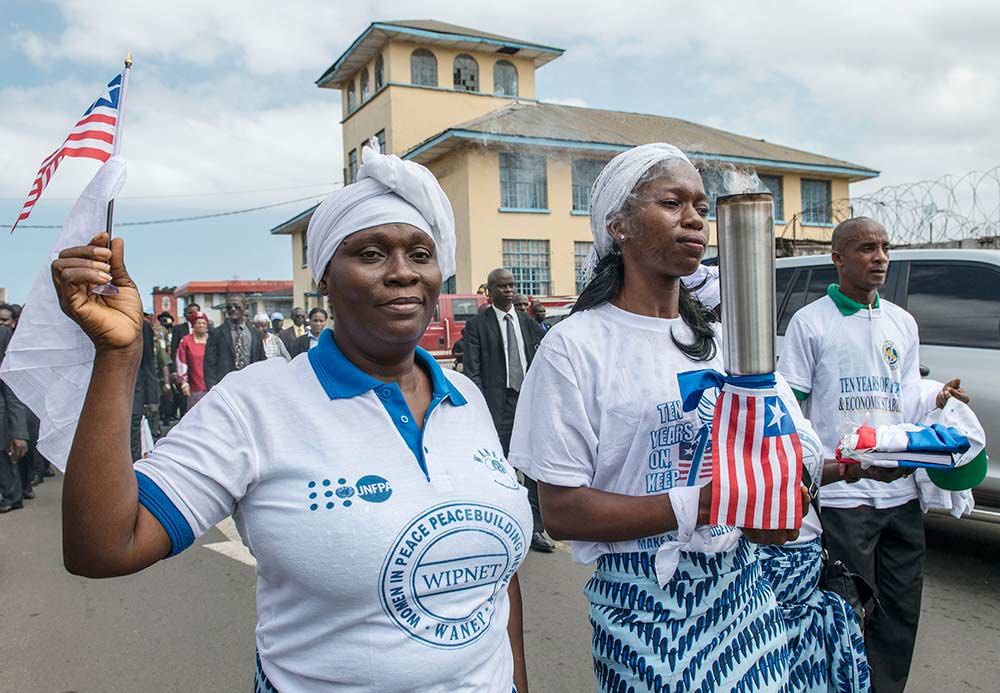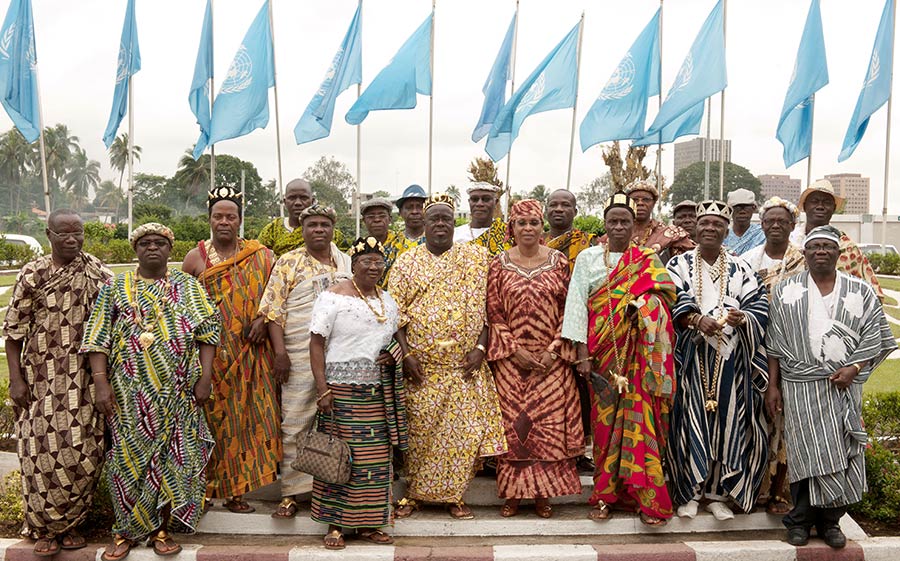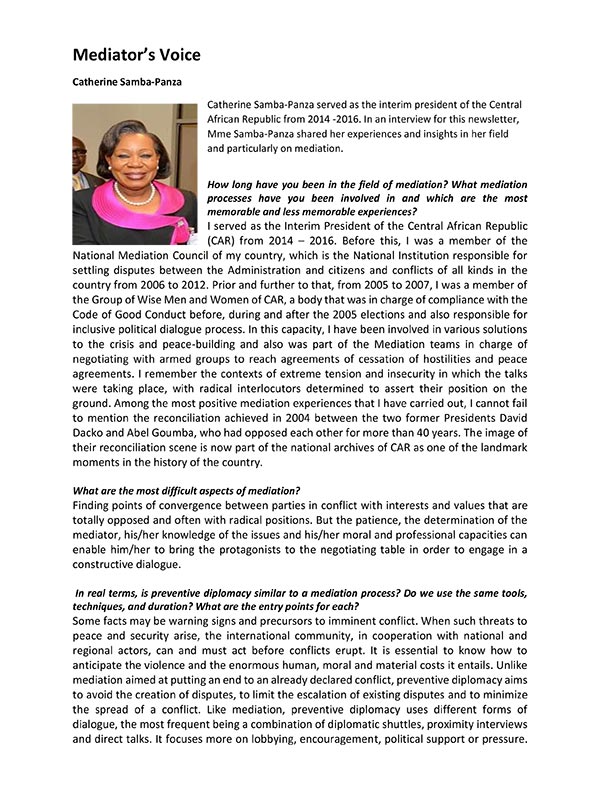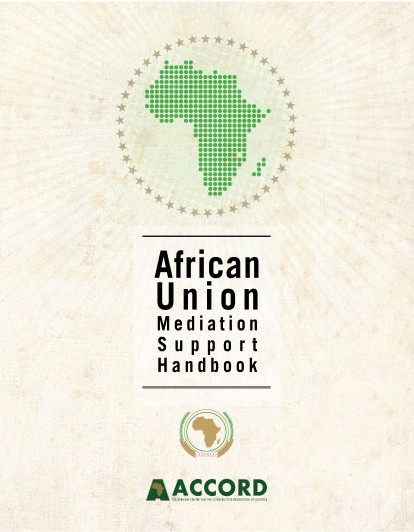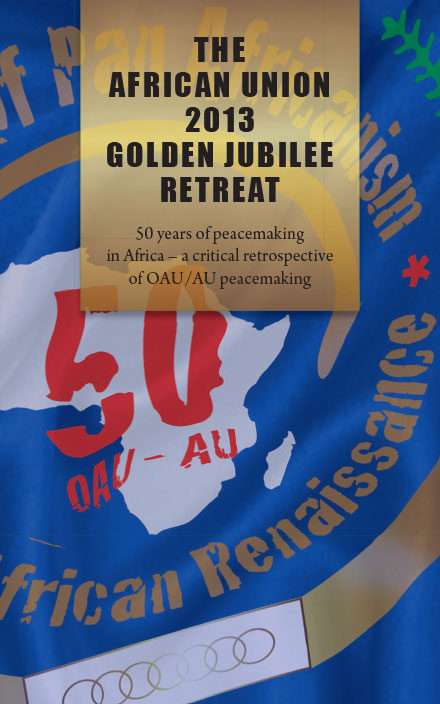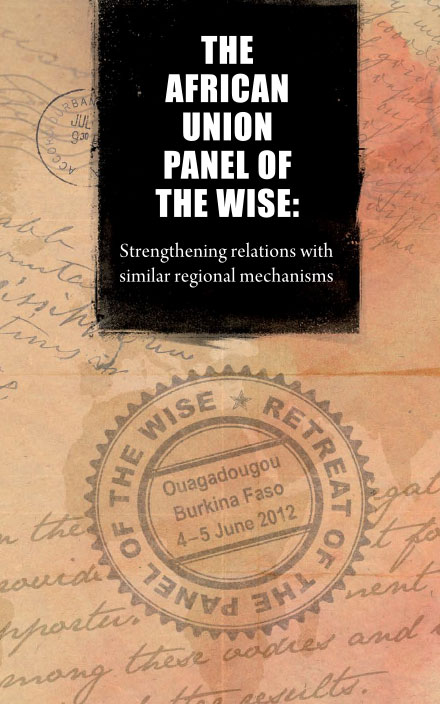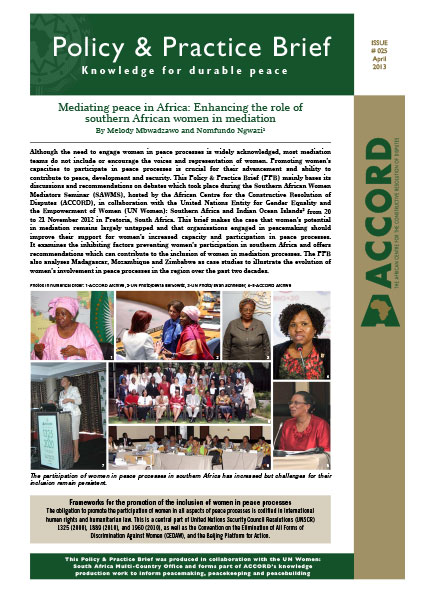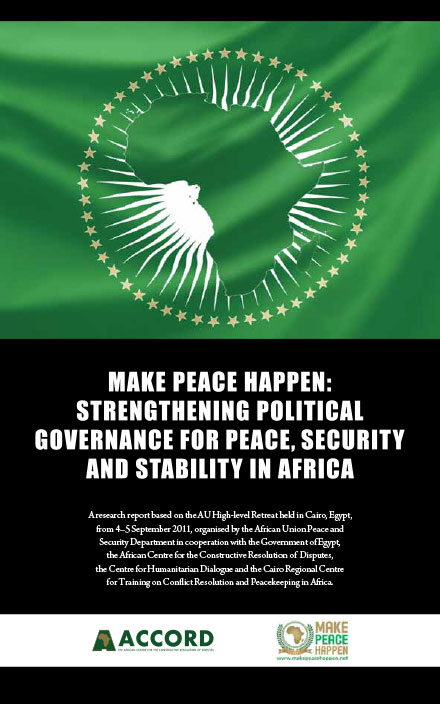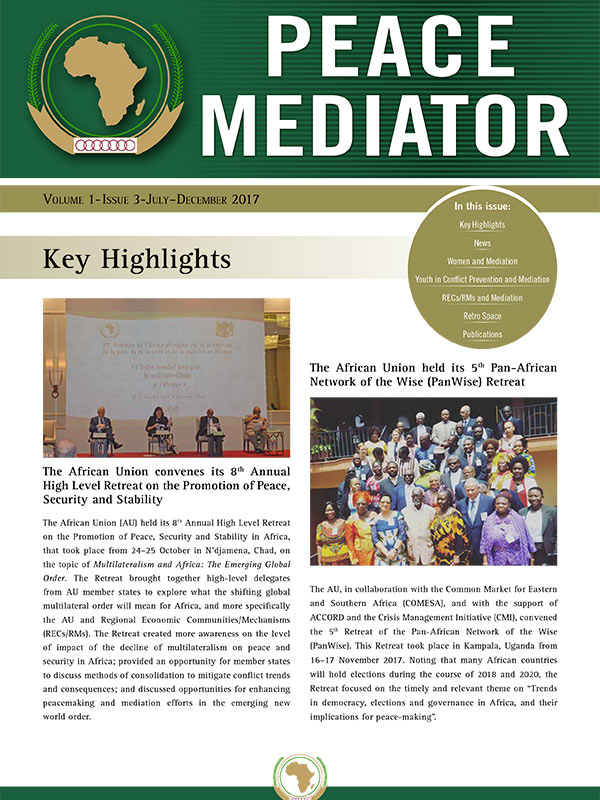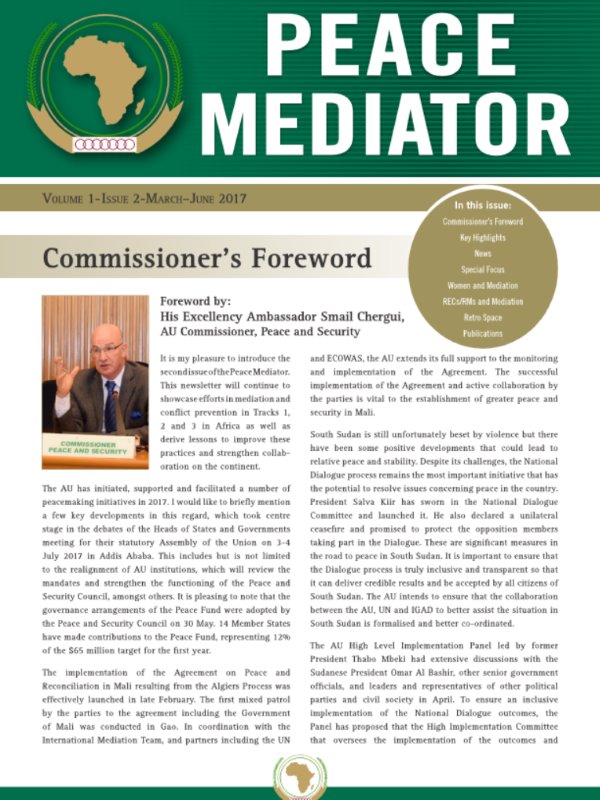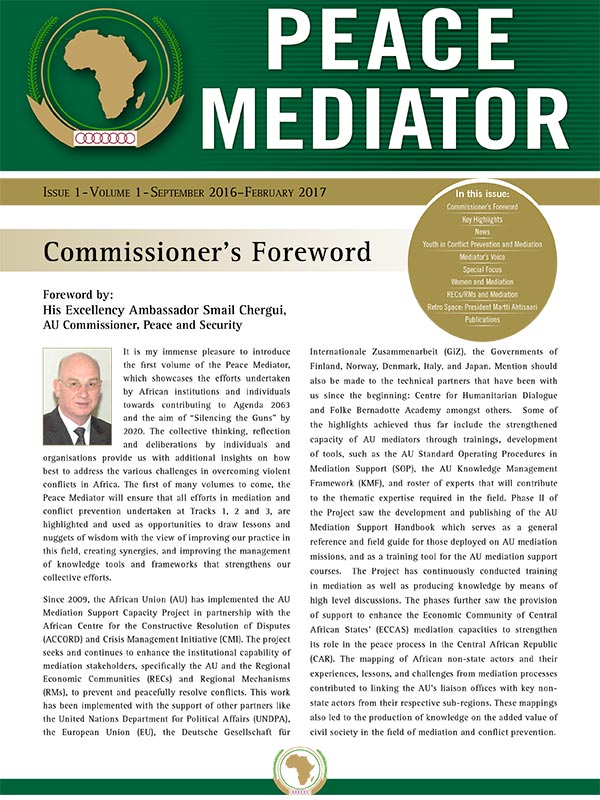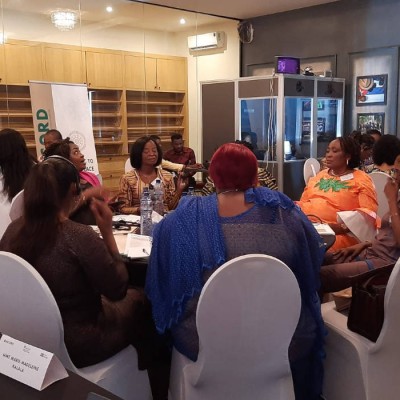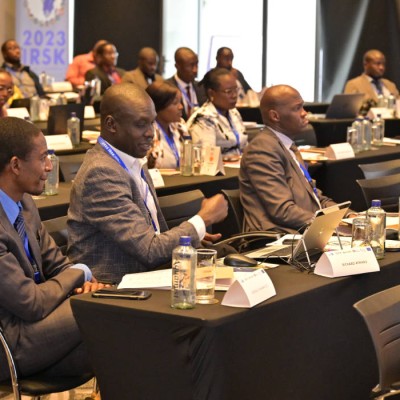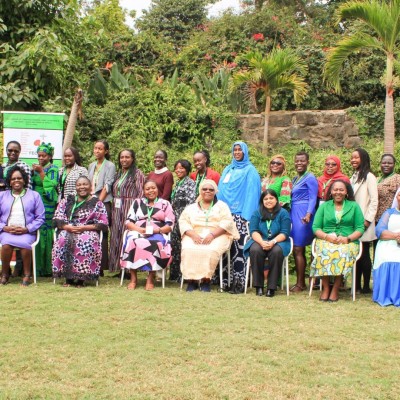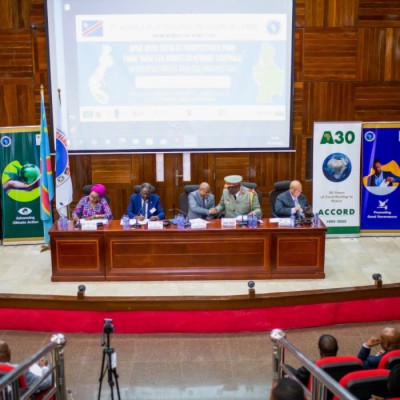An analysis of conflict in Africa between 1990 and 2010 showed a considerable decline in conflict that occurred on the continent during this period. This was due to many reasons, among them peacemaking interventions and advances in non-military forms of conflict resolution. Nonetheless, Africa today is still affected by armed conflicts that undermine efforts to bring about much needed sustainable socio-economic development that is required for the continent to effectively compete in the international arena. Peace and security is therefore a prerequisite for sustainable development on the continent. The prevention of violent conflict, and the promotion of dialogue and peaceful resolution of conflicts is therefore vital. The field of Peacemaking plays an important role in this regard.
Over the last 29 years ACCORD’s peacemaking activities have built mediation and mediation support capacity by providing mediation training to staff in the United Nations (UN), African Union (AU), Regional Economic Communities (RECs), as well as individual Governments and civil society organisations. In addition, ACCORD has hosted seminars on mediation and produced various publications to inform and influence the field. The institution’s experience places it as a leading African actor in the field of peacemaking.
ACCORD’s Peacemaking Unit (PMU) implements projects aimed at strengthening the mediation support capacity of the AU and the RECs. Additionally, through the development of training curricula (including the AU mediation handbook) and conducting mediation training for AU and RECs staff, the PMU plays a key role in the development of mediation approaches and techniques on the African continent.
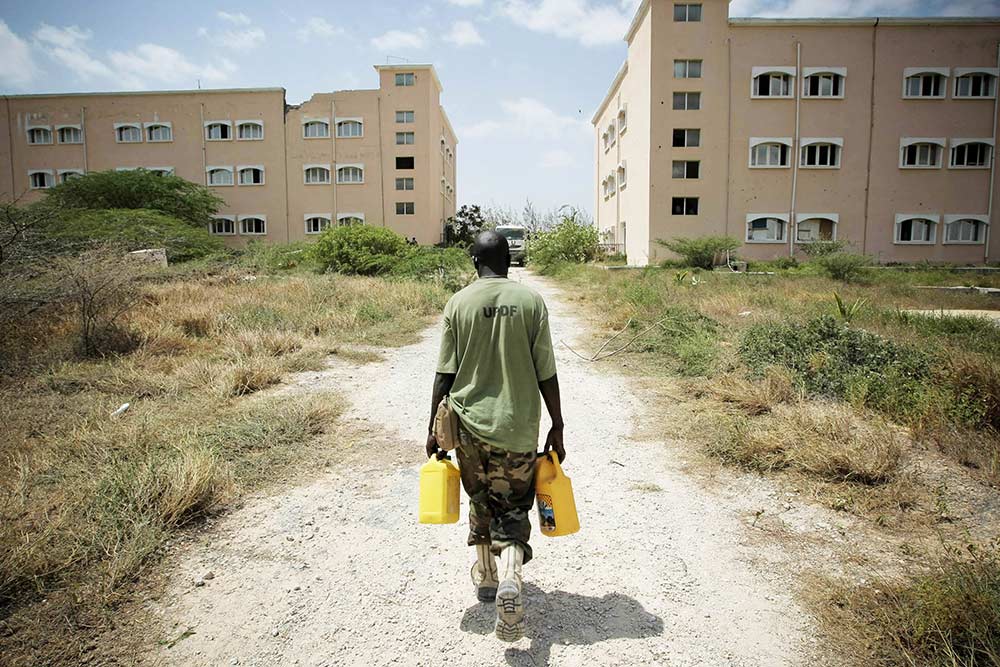
Overall Goal and Objectives
The overall goal of the Peacemaking Unit is the prevention of violent conflict, and the promotion of dialogue and peaceful resolution of conflicts on the African continent.
The Unit has the following specific objectives that contribute towards the overall goal:
- To build capacity on the African continent for conflicts to be resolved peacefully;
- To assist in establishing and to support peacemaking frameworks in continental, regional and national institutions;
- To promote mediation, negotiation and facilitation as effective peacemaking tools in Africa;
- To initiate, organise and implement peacemaking activities;
- To support already existing peacemaking interventions towards the reaching of sustainable agreements;
- To establish a core team of rapid deployment associates who can be deployed at a short notice in major peacemaking interventions in Africa; and
- To analyse and engage with relevant peacemaking initiatives in Africa with a view to producing detailed information, data and viewpoints that inform peacemaking developments on the continent.
Responses to Conflict
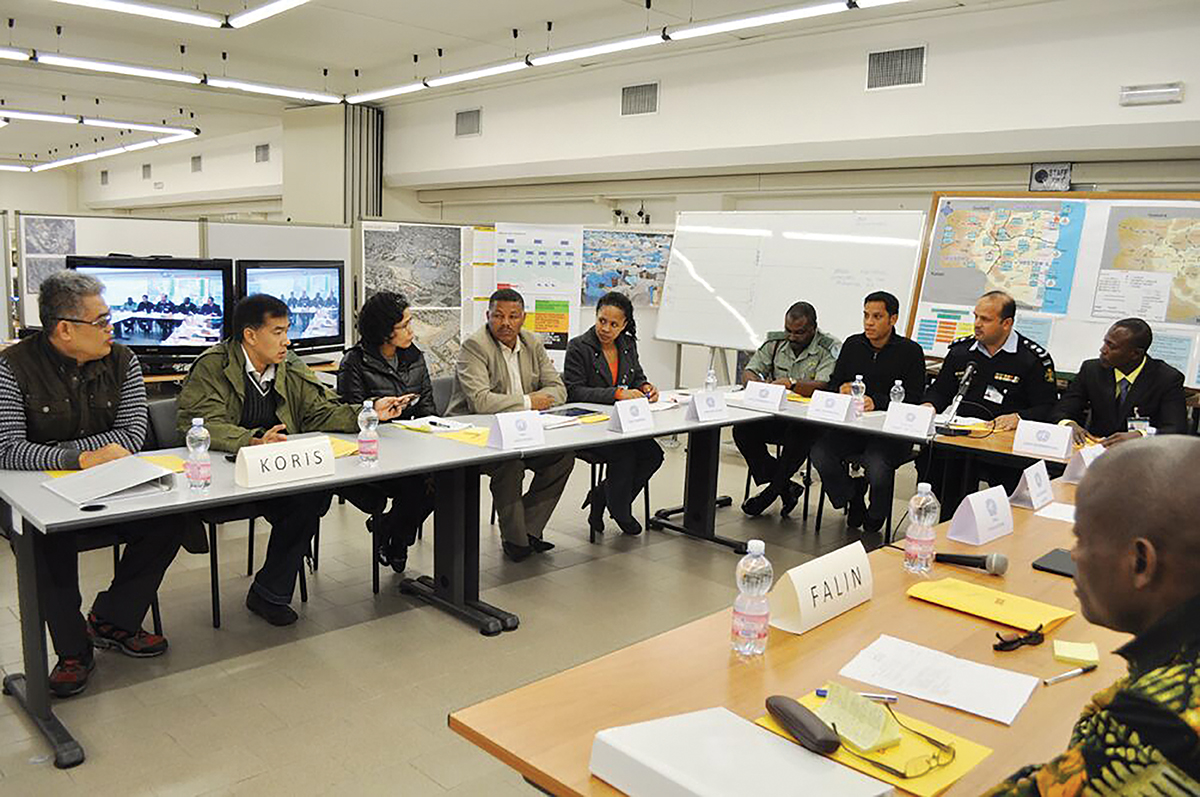
Following the monitoring, tracking and analysis of conflict situations the Peacemaking Unit implements the following initiatives as considered appropriate towards meeting the needs on the ground:
- Capacity building in conflict analysis, negotiation and mediation;
- Confidence building initiatives, including study tours and the agent of reality presentation;
- Interventions, including the facilitation of dialogue and mediations;
- Intervention support which includes strategy development, process design, mediation support, capacity building, and confidence building initiatives; and
- Policy development.
Projects and Programmes
Towards reaching its overall goal the Peacemaking Unit implements the following Projects and Programmes:
- The AU Mediation Support Capacity Project
- The Sudan Conflict Transformation Programme
